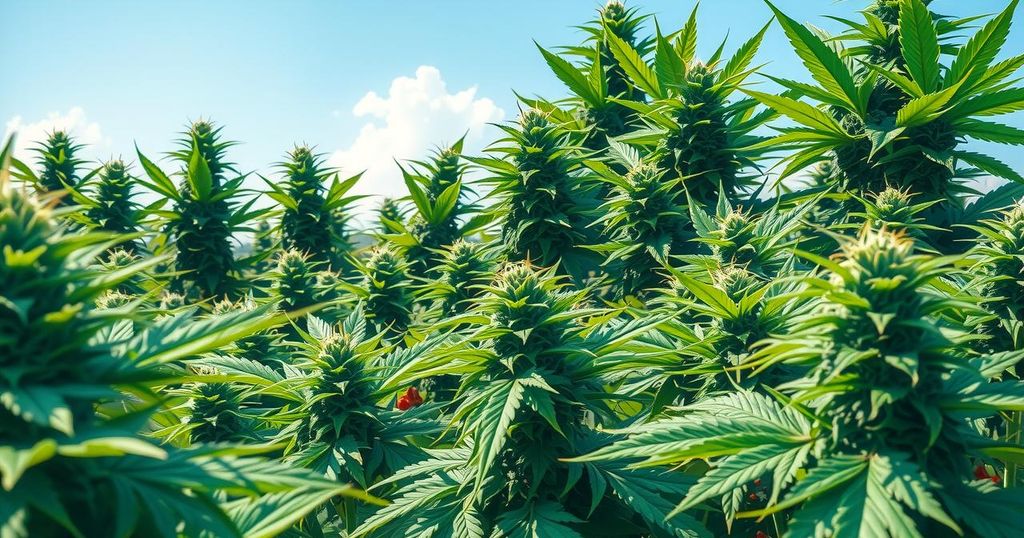Concerns Arise Over South Africa’s Cannabis Food Product Ban
South Africa’s Department of Health has banned all food products derived from the cannabis plant, sparking outrage from industry experts who deem the move unconstitutional and ill-informed. Organizations demand the ban’s reversal, with calls for legal action if necessary. The lack of public consultation and the subsequent potential economic implications are of significant concern, as experts emphasize the necessity of complying with global standards in cannabis regulation to foster growth in the industry.
The recent unilateral ban imposed by South Africa’s Department of Health on all food products derived from the cannabis plant, including hemp and cannabidiol (CBD), has evoked outrage from industry experts who deem it unconstitutional and misguided. Organizations in the cannabis sector have called for the immediate reversal of this prohibition, threatening legal action if their demands are not met.
Quietly gazetted on March 7, the ban emerged nearly two months after the signing on January 17, without any public consultation. This action is particularly concerning given President Cyril Ramaphosa’s acknowledgment of cannabis opportunities in his most recent State of the Nation address.
During a recent webinar, Penny Campbell, the Director of Food Control at the Department of Health, elaborated on the ban prohibiting the labeling of CBD and tetrahydrocannabinol (THC) as foodstuffs. While CBD is recognized for its therapeutic benefits and does not produce a high, THC can induce psychoactive effects. Campbell assured that the intention was safety and clarity for consumers, requiring manufacturers to disclose the presence of cannabis components in their products.
Furthermore, hemp, known for its low THC levels, boasts numerous applications, but the department has reclassed it as a non-food product, citing insufficient evidence of its nutritional benefits. This assertion is contested by industry advocates like Ayanda Bam, president of Friends of Hemp South Africa, who highlighted the nutritional properties and diverse uses of hemp seeds in various consumables.
Bam critiqued the department for inadequate research, stating that their decisions are made without a comprehensive understanding of the cannabis industry. He pointed out that hemp products, rich in essential fatty acids and proteins, represent a missed opportunity for South Africa, especially as international markets for hemp continue to flourish.
Experts disclosed that the global hemp seed market, estimated at $5 billion in 2023, is projected to double by 2032, with significant contributions from the food and beverages sector. Countries such as the US, Russia, Canada, and EU member states acknowledge hemp grain as a food commodity, contrasting with South Africa’s restrictive stance, which already affects over 1,400 regulated hemp businesses.
Financial repercussions for the industry due to the ban are substantial, with estimates of over R80 million in losses. The hemp sector, which has seen significant past investments, stands to lose more than R5 billion in future technology and infrastructure development.
Ben Sassman of Hemp4Life articulated the negative effects of the ban on market viability, emphasizing that the current regulatory framework discourages business sustainability. Moreover, industry leaders like Tebogo Tlhopane from Biomuti cautioned that this is a lost opportunity for economic advancement; potential job creation and international trade are now jeopardized.
The Department of Trade, Industry and Competition has outlined an initiative to regulate cannabis, yet market players note that progress has been sluggish. Sinah Mosehla, a representative at the department, confirmed that production would need to halt until regulations are established to guide proper labeling and marketing of cannabis-based foods. The Department of Health has yet to address inquiries regarding the ban at the time of this publication.
In conclusion, the ban on cannabis-derived food products imposed by South Africa’s Department of Health has drawn widespread criticism for its lack of public consultation and insufficient understanding of the cannabis industry. Industry advocates stress that this decision undermines opportunities for economic growth and job creation. Immediate reversal of the ban is urged by various stakeholders to mitigate escalating damage to the sector. The complexities surrounding cannabis regulation necessitate a pragmatic approach that encourages investment and aligns with global trends, ensuring that South Africa can capitalize on its potential in the burgeoning cannabis market.
Original Source: mg.co.za




Post Comment